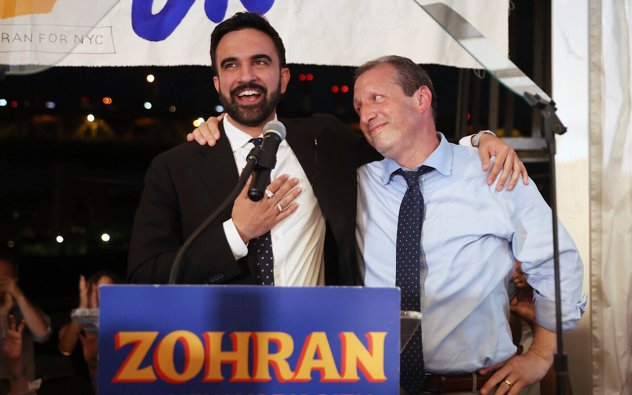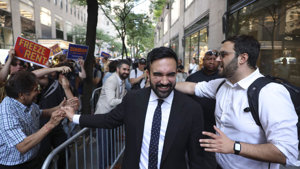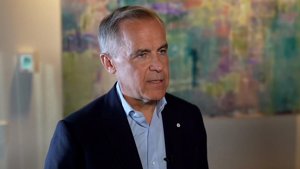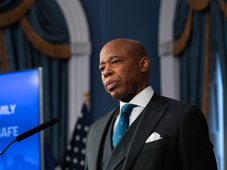
Mamdani’s College Articles on Israel, Privilege Surface
Unearthed college articles reveal Mamdani’s views on anti-Israel boycotts, white privilege, and campus diversity.
Mamdani’s College Writings Resurface as Mayoral Bid Advances
As New York City mayoral candidate Zohran Mamdani emerges as a frontrunner in the Democratic primary, newly uncovered articles from his time at Bowdoin College are drawing fresh scrutiny to his early views and activism. Mamdani, who wrote over 30 pieces for the campus newspaper between 2010 and 2014, advocated for an academic boycott of Israel, critiqued white privilege, and reflected candidly on his experiences as a non-white student.
In a senior-year editorial, Mamdani, co-founder of his college’s Students for Justice in Palestine chapter, called for a boycott of Israeli institutions. He described the movement as a response to “more than 60 years of Israeli colonial occupation of Palestine,” contending that academic partnerships privileged Israeli interests over the basic freedoms of Palestinians. Mamdani argued, “When Mills speaks of the ‘free exchange of knowledge, ideas, and research, and open discourse’ in academia, he does so while privileging partnerships with Israeli institutions over basic freedoms for Palestinians, including the rights to food, water, shelter and education, which many Palestinians are denied under Israeli rule.”
Mamdani also wrote extensively on race and privilege, directly addressing what he saw as the dominance of white perspectives in college discourse. Responding to criticism that the school’s editorial page lacked diversity, Mamdani asserted, “White males are privileged in their near-to-exclusive featuring as figures of authority in print, on television and around us in our daily realities.” He described white privilege as “both a structural and an individual phenomenon,” and lamented that even in diverse academic environments, such structures persist.
Reflections on Identity, Privilege, and Belonging
Reflecting on his own experiences, Mamdani shared stories of discomfort and isolation as one of few non-white students. He recounted wishing for whiteness during his first year, noting the challenges he faced in feeling accepted. “Clothing becomes exotic once it clads my body. Cotton shirts are called dashikis and sandals ethnic,” he wrote. In another column, he recounted growing a beard as a “symbolic middle finger” to stereotypes about Muslim men and described his sense of belonging while studying abroad in Egypt, where privilege and assumptions about identity shifted.
Mamdani’s writings highlight his struggle to balance pride in his heritage with frustration at institutional blind spots. “I sit in class not knowing whether to correct everyone’s mispronunciation of an Indian woman’s name. I usually do, but today I’m tired. I’m tired of being one of a few non-white students in a classroom, if not the only one,” he reflected. “But if people say they are color blind, do they even see me?”
Since his surprise victory in the Democratic primary, Mamdani has come under sharp criticism for his progressive platform, including calls for city-run grocery stores, defunding the police, safe injection sites, and raising the minimum wage to $30. His success has deepened divisions within the Democratic Party, as moderates urge caution following the party’s defeat in the last national election and progressives rally behind Mamdani and supporters such as Rep. Alexandria Ocasio-Cortez.
With Democrats holding a six-to-one registration advantage over Republicans in New York City, Mamdani’s candidacy appears poised for success in the general election. The resurfacing of his college writings, however, underscores the ideological battles shaping both the city’s future and the direction of national progressive politics.






